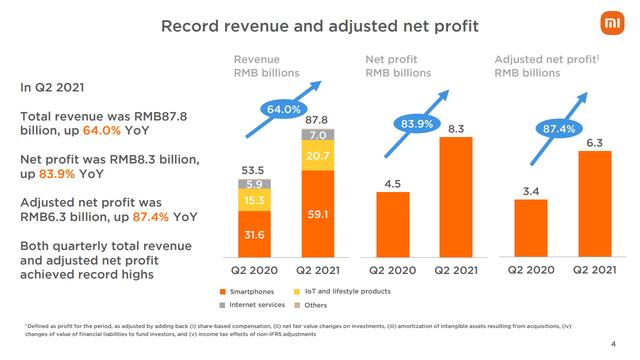Stock investment is a series of choices
Life is a series of choices. If you think about it, there are really a lot of "choosing something" in our daily life. Not to mention the big decisions in life like which school to go to, who to marry, what to eat for lunch? It can be said that our lives are a series of “choices” that require us to “choose” even small things such as where to go out after work today. In the same way, stock investment is a series of choices. However, there are many psychological traps waiting for us in this process of "choosing".
There are at least three choices to make when investing in stocks.
After all, the most important thing in investing is "what to invest in", so the first and most important thing is the selection of stocks. The next question is when to buy it. There is even a saying, "Don't buy stocks, buy time," so timing is also necessary to some extent. If you hold growth stocks for the long term, you don't have to worry about the timing of buying too much, but you still want to avoid jumping at high prices, so it's still a good idea to think about whether you should buy at this time. It is important. And after buying it, the price naturally fluctuates, so next time we are waiting for "when to sell it?"
There are three times just for important things like this, and depending on the case, there are various complicated options such as whether to buy more when it goes down, or on the contrary, whether to sell only a part when it goes up. I will come. However, making such decisions can be very emotionally taxing. This is because there are so many factors to consider and think about in order to make these investment decisions. Moreover, no matter how much you analyze and think about it, stock prices do not always move according to theory or as expected. Naturally, the psychological burden will be great because you will be worried at any time. That said, at least if you want to invest in stocks at your own risk, you can't avoid thinking and making a "choice" for yourself.
Tell me what's the most profitable!
However, there are often investors who don't want to think about such troublesome things and say, "I want you to tell me something that will make money quickly." Rather, there may be more people like that. When I was still active, I was also a lecturer at a stock investment seminar. Based on that, I will talk about the stocks to watch." The other day, when I was talking to an analyst, I heard that a lot of questions from the participants were, "Please just tell me the stock, no reason needed!"
In addition, as of the end of March 2021, there are about 7.5 million subscribers to the corporate-type defined contribution pension plan. Therefore, when starting the system, business owners are obligated to provide investment education. I have also served as a lecturer in such investment education several times, and I always have the same questions that come up even if the company is different. That is, "I don't care about difficult stories, just tell me the most profitable ones" (laughs). It's not that you don't know how you feel, but if you do, no one will have a hard time.
Many of the people who ask these questions don't know much about "investment" and take it lightly. They think that "making money in stocks is unearned income." That's why I'm misunderstanding that "I can make money by taking it easy". But investing is not that easy. It's true that investment profits are not the sweat of the forehead, but they are the sweat of the brain, so to speak. The ability to read financial statements is a must, at least if you want your investments to be profitable in the long term. At the very least, if you do not invest after reading quarterly reports and financial statements, you are more likely to fail. If you don't spend time and money, you won't get profit.
Stopping Thoughts and Avoiding Regrets
However, beginners are not the only ones who rely on people and ask for recommendations. Even among people with a certain amount of experience, there are not a few people who try to leave the "choice" to others like this. why would they be? From the perspective of behavioral economics, there are two things. The first is “stopping thinking due to information load”.

Humans are good at giving relatively simple answers such as black and white, but the more elements to judge, the more difficult it is to process information in the brain, and the more troublesome it is to think. I feel like I want to rely on people. It is a psychology that when you have a troublesome problem, you want to see it with a fortune teller. When deciding to invest in stocks, it is necessary to consider many factors, such as overall market trends, interest rate conditions, and the growth potential and performance outlook of the company you intend to invest in. Because there is so much information to think about, it is troublesome to think about such things, and I tend to stop thinking and say, "Please tell me the stocks that are likely to be profitable." But anyone with even a little investment experience knows all too well that asking people doesn't always get it right. Why do you want to ask anyway?
That's another reason, "avoid regret". Choosing something means giving up other options, and this is a courageous thing. Your choice may not always work. Perhaps there were better options out there that you didn't choose, or you could lose money because your choice failed. It's only natural to feel that you don't want to regret it when you make a mistake, or that you don't want to blame yourself. People want to avoid regrets when making decisions.
So, if you ask someone and buy and sell as they say, you don't have to worry at that point. It's very easy to believe that "that person's outlook is often right!" or "what he says is right!" Because it can be In short, we entrust judgment to someone else because we want to avoid regret or loss because of ourselves. As this grows, it becomes something close to a kind of “faith”.
But the worst thing to do in investing is to have "faith". In the world of religion, "believers will be saved", but in the market world, "believers will be betrayed". In investing, having faith is another way of saying "stop thinking." And this can happen not only with stock investments, but also with mutual funds. It is possible to blindly buy a stock just because "that fund manager is excellent" or "that investment trust's philosophy is wonderful."
However, when investing, it is important to think through how you judge and act. As I mentioned earlier, the only way to succeed is to “sweat your brain” and think flexibly and deal with it flexibly. Because there is no such thing as "absolute" in the market. It is important to always think flexibly and make decisions on the fly.
If you can't do that, you should buy an active mutual fund. However, even in that case, you should fully understand the contents of the investment trust you are planning to invest in, the costs you should bear, the investment policy, etc. before purchasing.
Whether you make a profit or a loss, ultimately the investor should bear all the responsibility.
⇒Click here if you want to read Hideki Oe's column "Misunderstanding of investment thinking in behavioral economics" Part 2
⇒Click here if you want to read more about Hideki Oe's column "Misunderstanding of investment in behavioral economics"
⇒Top
PROFILE
Hideki Oe
economic columnist
Born in 1952 in Osaka. After working at a major securities company until retirement, he became independent in 2012. Activities include lectures, writing, and media appearances on asset management, life planning, defined contribution pensions, and behavioral economics. Certified member of CFP®, Securities Analysts Association of Japan, etc. Has serialized columns in "Nikkei Veritas", "Diamond Online", "Toyo Keizai Online", etc. Regular commentator on NHK's "Radio Midnight Flight/Adult Culture Course". He has published a cumulative total of 350,000 copies of his books, including his latest book, “The Reason You Don’t Make Money from Investment” (Nikkei BP).
*The content of this article is the opinion of an independent author who has no direct relationship with our company. * Please note that the information posted may differ from the latest products, laws, tax systems, etc.










